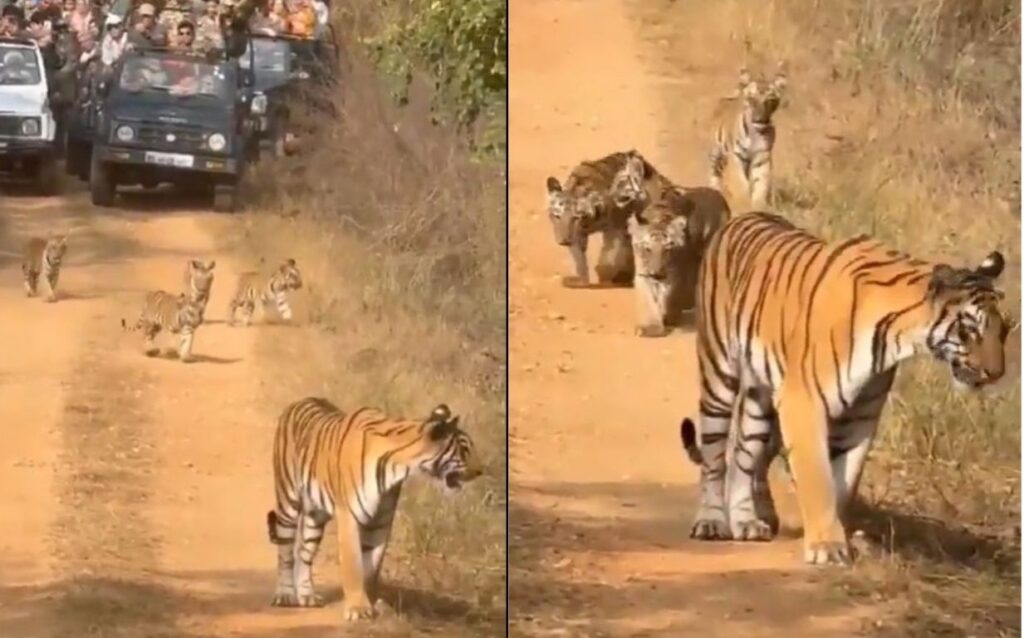Bombay High Court Intervenes After Tourists Corner Tigress And Cubs At Umred Pauni Karhandla Sanctuary In Maharashtra

Bombay High Court Intervenes After Tourists Corner Tigress And Cubs At Umred Pauni Karhandla Sanctuary In Maharashtra
The Nagpur bench of the Bombay High Court has taken suo moto cognizance of a troubling incident involving tourists cornering a tigress and her five cubs at the Umred-Pauni-Karhandla Wildlife Sanctuary near Gothangaon Gate on December 31, 2024. Expressing grave concerns over the sanctuary’s lax enforcement of wildlife protection protocols, the court has directed the principal chief conservator of forests (PCCF) to submit a detailed affidavit by January 3, 2025, outlining measures to prevent such incidents.
The Nagpur bench of the Bombay High Court has taken suo moto cognizance of a troubling incident involving tourists cornering a tigress and her five cubs at the Umred-Pauni-Karhandla Wildlife Sanctuary near Gothangaon Gate on December 31, 2024. Expressing grave concerns over the… pic.twitter.com/RUafEXRe6L
— Pune Pulse (@pulse_pune) January 7, 2025
A division bench comprising Justices Nitin Sambre and Vrushali Joshi criticized forest officials for their reliance on social media to detect violations and their failure to monitor activities within the sanctuary. They demanded a robust mechanism to ensure better enforcement of wildlife protection laws.
During the incident, the tigress, identified as F-2, was trapped by safari vehicles crowding both sides of the road. Agitated and displaying signs of aggression, the tigress struggled to retreat, while tourists captured photos and videos. The footage, which went viral, sparked outrage among wildlife enthusiasts and conservationists.
The sanctuary’s field director reported disciplinary actions against some guides and drivers but faced stern questioning about the lack of proactive monitoring. The court has ordered the PCCF to outline actions taken, propose monitoring systems, and suggest penalties under the Wildlife Protection Act, 1972, to prevent future disturbances to wildlife.












